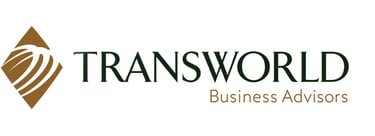How Brokers Market Your Business to Buyers Quickly?
Learn how a business broker in Orlando quickly connects sellers with serious buyers using proven strategies and targeted marketing methods.
10/28/20254 min read


Selling a business is a high-stakes process where timing, strategy, and market insight converge. For business owners aiming to sell efficiently without sacrificing value, the role of a business broker in Orlando becomes critical. Brokers are skilled intermediaries who know how to balance speed and profitability. They ensure that businesses are not undervalued while attracting serious buyers, creating a pathway to successful and rapid transactions.
The Initial Assessment: Setting the Stage
Before negotiations even begin, brokers invest time in understanding the business and its market position. This involves:
Valuation Analysis: Determining the true worth of the business through financial statements, cash flow projections, and market trends.
Identifying Key Assets: Highlighting elements such as intellectual property, customer lists, or unique service offerings that increase perceived value.
Market Positioning: Analyzing competitors and industry benchmarks to gauge how attractive the business appears to potential buyers.
This early-stage preparation ensures that the broker enters negotiations armed with data, preventing rushed decisions that could compromise the sale price.
Building a Strong Buyer Profile
Not all buyers are created equal. Brokers prioritize identifying buyers who are:
Financially Capable: Able to complete the transaction without financing hurdles that could delay the process.
Strategically Aligned: Seeking businesses that complement their existing operations, increasing the likelihood of a smooth transition.
Decision-Oriented: Ready to act within a reasonable timeframe, reducing negotiation drag.
By filtering out unsuitable buyers early, brokers avoid wasting time on negotiations that are unlikely to close, allowing for quicker, more profitable outcomes.
Negotiation Strategies That Accelerate Sales
Successful brokers employ nuanced negotiation techniques designed to maximize sale value while minimizing delay. These strategies often include:
Anchor Pricing: Setting a well-researched initial asking price that establishes a strong reference point for discussions.
Highlighting Urgency: Subtly emphasizing market opportunities or timing constraints to encourage buyers to act quickly.
Creating Competitive Tension: Presenting multiple potential buyers simultaneously to foster a sense of urgency and competition.
Flexible Terms Structuring: Offering creative solutions such as earn-outs, deferred payments, or performance-based incentives to satisfy buyer concerns without lowering price.
Each of these tactics is executed with precision, ensuring that the broker can accelerate the process without conceding value.
Effective Communication During Negotiations
Clear, transparent communication is a cornerstone of broker-led negotiations. Brokers act as intermediaries who:
Translate complex financials into understandable terms for buyers.
Address buyer objections without appearing defensive.
Maintain professionalism and neutrality to keep discussions focused on terms rather than personalities.
By keeping communication structured and purposeful, brokers prevent misunderstandings that can slow down or derail a sale.
Handling Objections and Counteroffers
Objections are inevitable. Brokers manage them by:
Preparing Data-Backed Responses: Using historical performance, industry benchmarks, and market research to counter low offers.
Prioritizing Non-Monetary Concessions: Redirecting negotiations towards favorable terms such as extended transition support or flexible payment schedules.
Maintaining Emotional Discipline: Preventing personal attachment from influencing decision-making, keeping the focus on achieving both speed and profitability.
This approach ensures that deals remain attractive to buyers while preserving the seller’s financial goals.
Closing the Deal Quickly
Time is often of the essence. Brokers employ specific tactics to finalize transactions efficiently:
Pre-Structured Agreements: Drafting preliminary contracts with essential terms already agreed upon, shortening negotiation cycles.
Staged Due Diligence: Coordinating documentation and audits in advance to prevent delays once an offer is accepted.
Anticipating Roadblocks: Identifying potential issues, such as financing delays or regulatory requirements, and addressing them proactively.
By reducing friction in the final steps, brokers minimize the time between offer acceptance and transfer of ownership.
Case Scenarios: How Negotiations Play Out
Consider a mid-sized service business in Orlando. A broker identifies three potential buyers:
Buyer A: Offers full cash up front but undervalues the business by 20%.
Buyer B: Matches market value but requires a long financing period
Buyer C: Slightly below asking price but offers strategic synergy and fast closure.
The broker leverages Buyer C’s strategic alignment to expedite the deal while negotiating minor price adjustments, ultimately securing a profitable and quick sale.
Another scenario involves a technology startup: the broker structures an earn-out agreement, allowing part of the payment to depend on future performance. This satisfies the buyer’s risk concerns while keeping the upfront sale profitable and timely.
Common Mistakes Brokers Avoid
Successful brokers ensure speed and profitability by avoiding pitfalls such as:
Overvaluing the Business: Leading to prolonged negotiations and lost buyer interest.
Underestimating Market Trends: Missing the opportunity to sell quickly at peak value.
Ignoring Buyer Psychology: Failing to address motivations, which can stall or derail negotiations.
Poor Documentation: Delaying closings due to incomplete or inaccurate information.
Avoiding these errors preserves trust, maintains buyer engagement, and accelerates the overall process.
Key Skills That Enable Brokers to Succeed
Brokers combine a mix of analytical, interpersonal, and tactical skills:
Analytical Acumen: Interpreting financial data, market trends, and buyer behavior.
Persuasive Communication: Convincing buyers while maintaining professionalism and neutrality.
Negotiation Finesse: Balancing firmness with flexibility to protect value.
Time Management: Coordinating multiple buyers and transaction steps simultaneously.
These skills allow brokers to navigate complex deals efficiently, delivering profitable outcomes in compressed timelines.
Post-Negotiation Support
Even after a deal closes, brokers often assist with:
Transition planning for staff and clients.
Ensuring all contractual obligations are met by both parties.
Providing post-sale consultation for smoother integration.
This follow-through safeguards the sale’s value and maintains professional credibility, ensuring clients are satisfied and future referrals are more likely.
Conclusion
Negotiating a business sale is a delicate balance of speed, value, and strategy. A business broker in Orlando orchestrates each stage, from valuation to post-sale support, with precision. By preparing thoroughly, targeting the right buyers, employing tactical negotiation strategies, and avoiding common pitfalls, brokers achieve the dual goal of rapid and profitable business transfers. Their expertise allows sellers to navigate the complexities of the market confidently, ensuring that timing never undermines financial gain.


